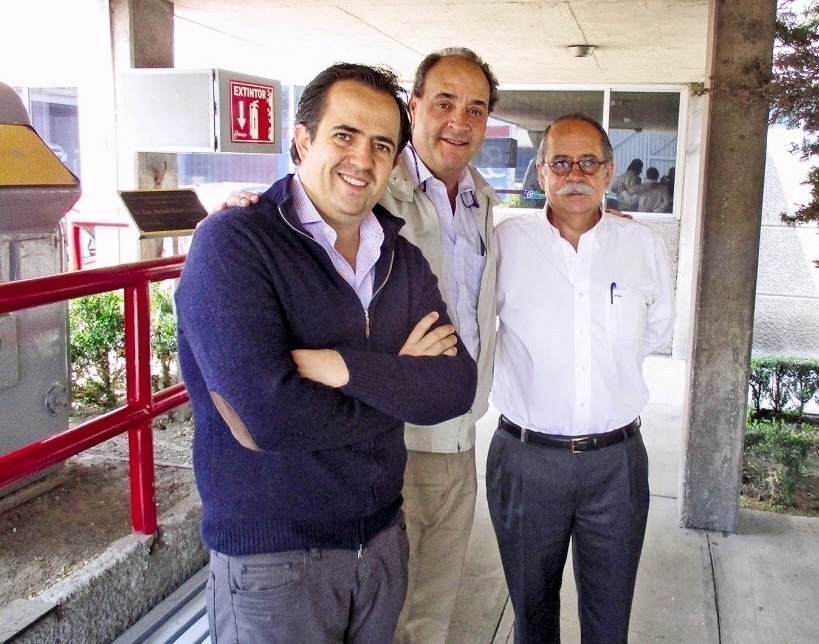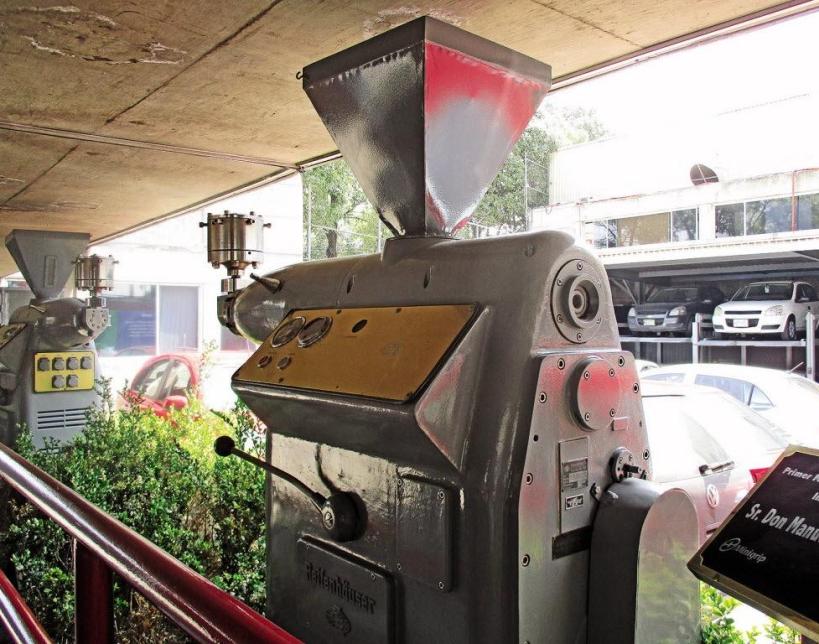July 26, 2016 Updated 7/26/2016
Email Print

Stephen Downer From left, Guillermo Guzmán Abascal, Luis Olivarri Hervella and Juan Pablo Guzmán Giraud.
Mexico City — Flexible packaging manufacturer Minigrip de México SA de CV is investing heavily in new machinery and software as it strives for greater efficiency and growth.
Sales in 2015 totaled 420 million pesos ($ 24.3 million) — up 5 percent from 400 million pesos the previous year ($ 27.1 million).
Managing Director Juan Pablo Guzmán Giraud expects sales to top 440 million pesos ($ 23.8 million) in fiscal year 2016. (The decreasing sales measured in U.S. dollars is the result of the fluctuating peso/dollar exchange rate.)
In 2017, he expects “a 15 percent increase in sales” in relation to 2016, partly thanks to new extrusion equipment that will arrive in the next few months. The company uses Davis-Standard and Windmoeller & Hoelscher extrusion machinery almost exclusively.
Sixty percent of the company’s sales come from extrusion, which operates around the clock, seven days a week, Guzmán said, “and 90 percent of what we produce, we also print and convert.” The company’s services include bag making, laminating, printing and slitting. It recycles all its waste material in-house.
End markets are food, household and personal care packaging, medical/pharmaceutical, agricultural, industrial, trash and merchandise bags, pallet overwrap, shrink, stretch and barrier film and laminations.
Guzmán said Minigrip invests 15 percent of sales in new machinery and equipment.
Deputy Managing Director Luis Olavarri Hervella added: “We see a potential opportunity among customers who are looking for better technology as well as savings, and the only way is [investing in] new technology.
“We don’t like to say how many machines we have,” he added.

Stephen Downer The first machine Minigrip purchased is now on display at the company.
According to Olavarri, the company’s strategy is to invest when the economy is not doing well so it is prepared when circumstances improve.
Asked whether he thought Mexico is facing an economic crisis, he replied: “No, but consumption is starting to go down.”
Located in Vallejo, a huge industrial zone in northern Mexico City, Minigrip will be 50 years old in October. Founded by Manuel Abascal Sainz in 1966, it employs 280 and processes 26.5 million pounds of resins, including polyethylene, PVC, PET, polypropylene and nylon annually.
Abascal, from the northern Spanish autonomous region of Cantabria, left post-Civil War Spain in 1947 to seek his fortune in Mexico, where he married and fathered eight daughters.
He died in 2013, at the age of 87, leaving the company in the family’s hands. Seven partners — all family members — own Minigrip today. Guzmán, an Abascal son-in-law, has been with the company for 38 years.
Guzmán’s son, Guillermo Guzmán Abascal, Minigrip’s purchasing director, said Minigrip’s directors have introduced a number of corporate business practices.
“This year we are introducing ERP [enterprise resource planning] business management software,” he said.
His father added: “Compared to three or four years ago, everything [at the 140,000-square-foot factory] is very different.” Among the changes is a new roof, making the plant airier.
According to Olavarri, Minigrip’s aim is to become more efficient, meaning, among other things, it will soon employ 20 to 40 fewer non-skilled staff members. Asked how difficult it is to find qualified personnel, he replied: “Very difficult,” adding that some workers change jobs “as frequently as they change socks.”
Guzmán senior said Mexico’s education system is not producing enough qualified people. Operator turnover at the company is less than 1 percent a year, he said, “but the turnover of operator assistants is 25 percent a year.”
Despite this, he and his partners are optimistic about the future because Minigrip “manufactures products that people cannot do without.” Mexico’s economic future is bright because of the seemingly endless flow of foreign direct investment into the country, he said.
About 12 percent of Minigrip’s sales come from exports. Guzmán anticipates that figure will increase to 18 percent this year. Central and South America account for 70 percent of export sales, followed by the United States and Australia.
Minigrip is awaiting the result of an ISO 9000 audit. “We expect the result in August and we expect to pass,” said Guzmán’s son, Guillermo.




























